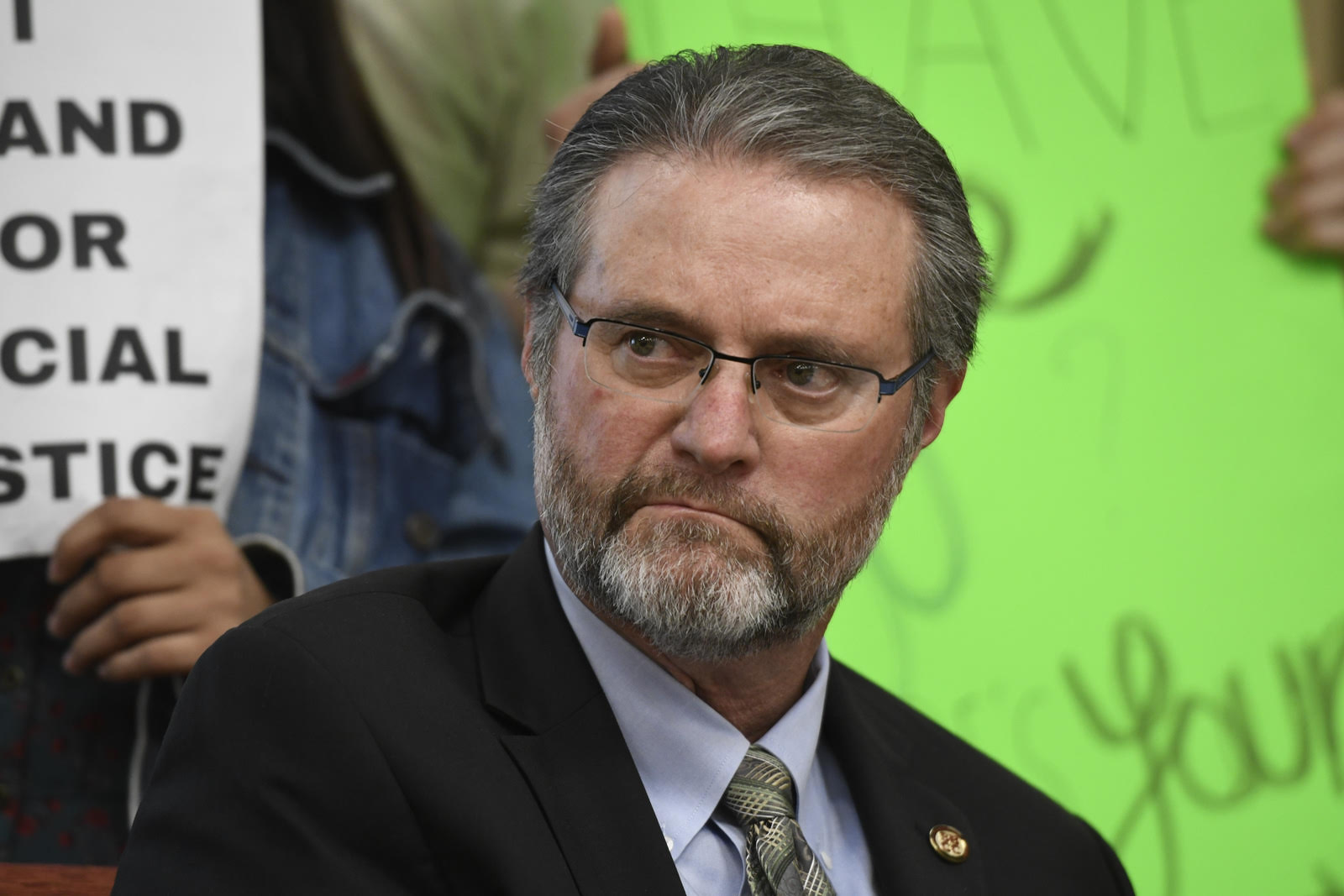SBCC President Announces Early Retirement
Beebe States Health Concerns Led to His Decision

Santa Barbara City College President Anthony Beebe announced today, via a campus-wide email, that he will be retiring this summer after having served the college for almost three years. His announcement follows a special Board of Trustees meeting yesterday that he called to discuss his health concerns. “The Board expressed unanimous support for Dr. Beebe in leading the College. We have full confidence in him and wanted him to continue as Superintendent/President for several more years. However, we respect the decision he has made and strongly encouraged him to prioritize his health,” wrote Trustee President Robert Miller on behalf of the board. According to Beebe’s letter to the campus, he’s struggling with health-related issues, including cancer and heart problems.
“While my time here has been challenging, we have had many memorable experiences and several accomplishments of which to be proud,” wrote Beebe to the campus. Under his leadership, the college established the new School of Extended Learning and expanded the SBCC Promise program. The Equity and Social Justice and Umoja Programs were also created while Beebe was president. However, of his three years with the college, the last nine months have been marked by a number of stressful incidents.
His announcement comes amid concerns from students and staff that racial tensions have been downplayed or ignored the last several months. At yesterday’s board meeting, two college faculty members spoke of their dismay with his leadership. Annette Cordero, who’s been with the college for more than 40 years and through eight presidents, said this is the most divided she’s ever seen the college.
A black faculty member, who asked her name not be used, iterated students’ criticism that Beebe canceled a meeting in January with Umoja students 15 minutes before the scheduled start time without explanation. Umoja is a program to promote success for African-American and other students. She accused Beebe of creating a “troublesome power dynamic” by calling specific students to meet after cancelling a general meeting the previous week and for having an attorney present when the meeting was rescheduled. “It is not common practice to invite an attorney to open office hours,” she said.
The racial turmoil on campus was highlighted by Vice President of Business Services Lyndsay Maas’s use of the unabbreviated n-word at a gender equity meeting in November. Since then, black students and staff have shared with the board countless incidents of alleged harassment and racial animosity they have experienced on campus. Beebe’s response to the incident has been criticized by students and staff and led to a student silent protest at the January 24 board meeting.
Prior to the airing of racial issues, the campus was gripped by allegations of harassment by then-professor Mark McIntire. His comments were found to fall short of actionable harassment, however; the incident ended with McIntire being let go from the college, a $120,000 settlement after he sued the school, and an open letter of apology from Beebe to the campus. The gender equity committee in which Maas used the n-word was born shortly after this incident.
Yet, Beebe has left a significant impact on the campus. Beebe is credited for steering SBCC onto a path that reduced a projected $9 million deficit. Beebe also secured a 7 percent raise for faculty, classified staff, and administrators. He’s applauded for his leadership throughout the Thomas Fire and Montecito debris flow. “He’s in the handful of very wonderful people I’ve met,” said former trustee Marty Blum, who describes herself as one of his biggest fans. “He has a good heart, understands our college, and understands people.”
Beebe’s vacancy will be temporarily filled by a board-appointed interim superintendent, wrote Robert Miller. The vacancy comes at a time when the board is looking to diversify faculty and staff on campus. At the November 8 board meeting, Vice President of Human Resources Monalisa Hasson presented the annual faculty and staff diversity report that showed in the 2017-18 school year, 71 percent of full-time faculty at the college identified as white — statewide that number is 39 percent. “Research shows that representation matters to our students,” said Hasson.



